Humanities Major Alumni
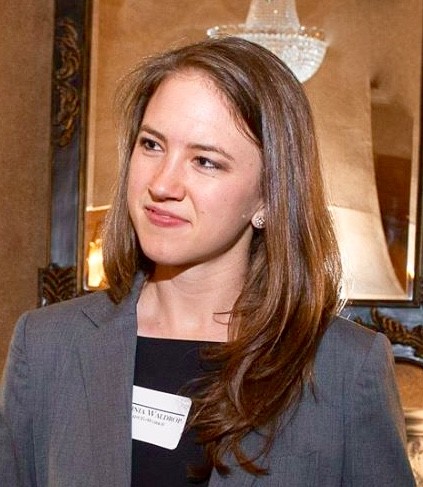
Question: What can you do with a Humanities major?
Virginia: I’ll speak from what I know: you can go into education and business—the areas I have dipped my toes into since graduating—as well as medicine (where I am headed), among many other possibilities. An advantage I believe humanities majors often have is a story to tell about their education. That narrative is compelling and is an insight for employers, admissions committees, etc., of their ability to think creatively and boldly.
Question: Did your humanities major change the way you thought about your intended career?
Virginia: Our first reading assignment for “Evidence in Humanistic Inquiry,” was a pair of articles on medical schools and police departments taking their students to art museums in order to hone their powers of observation. The subject of those articles encapsulates how the Humanities major has impacted the way I think about my intended career in medicine. Majoring in humanities has not lessened my interest in scientific inquiry. It has complemented it, and I suspect I will use my humanities background as much as my science background as I train to be a doctor. Humanities brought me to a place where I have to think and make connections across disciplines in order to find myself fully engaged in whatever I’m doing.
Question: What was the most memorable course you’ve taken at Yale?
Virginia: There were two that stood out to me. The first was “Rhetoric and Political Order” with Professor Thompson—I loved this course not only for the content but also for the group of people it brought together. I looked forward to hearing what my peers had to say every lesson and felt lucky to have been a part of that eclectic and highly intelligent group. Reading Plato for the first time, particularly the Phaedrus, was memorable and a little bittersweet – I was sad I had come to it so late relative to many of my peers but happy I had come to it at all. The whole course reinforced my decision to cross disciplines and major in humanities, particularly writing a final paper on Anne Elliott’s Machiavellian virtue.
The other course was “Modern British Drama” with Professor Fox. This course, which I took as part of Yale-in-London, should have been called “How to be a Theatre Critic.” We went to the theatre twice a week, and then walking back from each show we would debate the merits of the production as well as the play itself. These debates didn’t take place in a classroom or because a professor was leading them – they happened as we rode the Tube or walked home (sometimes purposefully walking home in order to talk for longer). Our discussions from that summer remain some of my favorite memories from Yale and helped lead me back to England after graduating.
Question: What was the most provocative course?
Virginia: “Secularism: Enlightenment-Present” with Professor Stern – The reading list, particularly After Virtue by Alastair MacIntyre and Sources of the Self by Charles Taylor, as well as Professor Stern himself made this course one of the most provocative parts of my Yale education. We had quite a small group in that seminar, but I remember not being bored for a minute of the two-hour session each week (perhaps because there was nowhere to hide!).
Matthew is pursuing a doctorate in business administration at Harvard Business School, and plans to spend his career as a business school professor.
Question: How does your Humanities major fit into your current career?
Matt: Today, the social sciences strongly emphasize quantitative tools, and being good at math, statistics, and programming are increasingly important for admission into PhD programs. So when I first considered this career, I worried my Humanities major would be a disadvantage. To make the transition, I had to work hard, taking night classes in math, statistics, and computer science while I was working in my years between Yale and graduate school. But now that I’ve done that, I see several advantages from my Humanities major.
One advantage of the Yale Humanities major is exposure to the world’s best training in verbal reasoning. While we social scientists emphasize mathematical modeling and statistical inference in the papers we publish, when we generate ideas and refine them, we mostly use verbal reasoning. Good verbal reasoners—people who can make precise and interesting conceptual distinctions and express them clearly—make the best social scientists as a result. Also, the Humanities reveal that some of the most important questions that we debate have no empirical solution.
The humanities debates over the respective merits of freedom vs. authority continue to show up in business and economic theory today—we just call it the question of “optimal firm scope” or “optimal span of control.” The debates from Descartes to Wittgenstein, over whether our minds reflect the world like a mirror or recreate it with distortions, show up too—today we just use the language of “cognitive biases” and “bounded rationality.” Having a grounding in the great books that have grappled with these questions for thousands of years is an invaluable advantage, and helps us think more clearly, creatively, and humbly about these questions.
Question: What would your advice be to current prospective Humanities students thinking about their careers?
Matt: I would encourage them not to think of themselves as facing a stark choice between a meaningful, but useless, education in the Humanities and a practical, but soulless, focus on pre-professional training. I think it’s possible to both fully immerse yourself in the life of the mind while at Yale and also take modest steps to position yourself for a fulfilling career, and that the two can complement each other.
Question: What would you do differently if you were beginning your education all over today?
Matt: For students considering very structured career paths, such as medicine or engineering, I would encourage them not to assume that a passion for the Humanities should debar you from these careers. For the many Humanities students who are not on a structured career path, the truth is that you will almost certainly end up working for or with businesses. It is important to learn the language of business—of how they raise financing, reach customers, navigate their internal politics, evaluate employees, try to figure out a ‘strategy,’ and get things done. These things should be considered when looking at a summer internship.
In short, I believe in an Aristotelian balance. With a few modest supplements to the Humanities major’s curriculum, you can get the world’s finest education in the artes liberales, and pay your own rent afterwards, too!
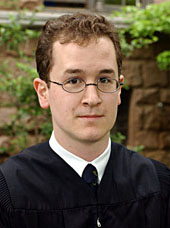 After leaving Yale, Wallace spent a year in Japan on a Light Fellowship.When he returned, he entered Harvard Law School. Taking a year’s leave of absence, he spent this past year at King’s College, Cambridge in order to take an MPhil in Oriental Studies. He is now back at Harvard to finish up his last two years of law school. When he graduates, he plans to work for the law firm Davis Polk & Wardwell, likely in their Tokyo, Hong Kong, or Beijing office.
After leaving Yale, Wallace spent a year in Japan on a Light Fellowship.When he returned, he entered Harvard Law School. Taking a year’s leave of absence, he spent this past year at King’s College, Cambridge in order to take an MPhil in Oriental Studies. He is now back at Harvard to finish up his last two years of law school. When he graduates, he plans to work for the law firm Davis Polk & Wardwell, likely in their Tokyo, Hong Kong, or Beijing office.
On the Humanities major: While a major like Humanities of course does not confer the practical skills necessary for capital markets law, it does confer a feeling of intellectual confidence that is extraordinarily useful to a law student. Harvard Law is a rather intense place, but in my experience, people who have been through Directed Studies or the Humanities major are well-positioned to think and write carefully, which are the requisite abilities of a good lawyer.
I liked the fact that we were a sort of elite within Yale, permitted to take courses where and when we liked, with professors of our choosing. I combined Humanities with International Studies—which was also very flexible when I was there—and would not change a thing, even if I were given the chance. I do not think I have a single friend who was exposed to the breadth and depth of the Yale faculty in the way that I was. I am a big fan of the program.
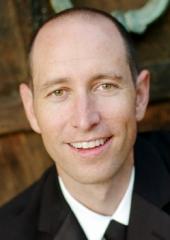
On the Humanities major: I owe my involvement in the Humanities major to a fellow student who pushed me to look into it—probably the best advice I’ve ever received. I remember the program as incredibly stimulating from an intellectual perspective, particularly in the way that it allowed our small, close-knit group to explore and even challenge a variety of historical and aesthetic concepts.
I invariably get funny looks when I tell colleagues or students that I don’t have an undergraduate degree in music. But, to be honest, I cannot imagine a better educational background for a conductor than the thought-provoking approach to intellectual history provided by the Humanities major at Yale. I use the skills and knowledge gained in the major in every facet of my work—from making historically informed artistic decisions about pieces I perform; to presenting talks, interviews, and pre-concert lectures; to advocating for and articulating the value of concert music of our own time.
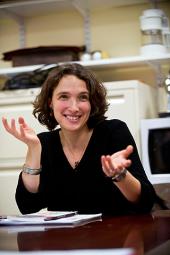 After working for a couple of years as a journalist, Margaret entered the PhD program at the Committee on Social Thought at the University of Chicago. She finished in June 2006 with a dissertation examining the way Arab intellectuals since the 1950s have used Shakespeare’s plays, particularly Hamlet, to formulate and express their political ideas and aspirations. Her research interests include Arab political culture and political theatre, Soviet-Arab cultural influences, Shakespeare’s afterlives, and the ways in which people in two semi-Western contexts (the former Eastern bloc and the Arab world) discuss the problem of justice.
After working for a couple of years as a journalist, Margaret entered the PhD program at the Committee on Social Thought at the University of Chicago. She finished in June 2006 with a dissertation examining the way Arab intellectuals since the 1950s have used Shakespeare’s plays, particularly Hamlet, to formulate and express their political ideas and aspirations. Her research interests include Arab political culture and political theatre, Soviet-Arab cultural influences, Shakespeare’s afterlives, and the ways in which people in two semi-Western contexts (the former Eastern bloc and the Arab world) discuss the problem of justice.
On her experience as a Humanities major: The Humanities major (along with Directed Studies) showed me how much there was to learn about life and literature, and how little of it I knew. For instance, take my fun but completely inadequate senior essay: the discrepancy between the enormous question and the tiny piece of the answer I was able to provide has been a continuing source of provocation. It has inspired me to read, think, and travel more, and to seek out a course of study and a line of work that will let me.
The Humanities major is an extremely advantageous course of study for an undergraduate, offering small seminars, enthusiastic teachers with varied interests and backgrounds, lots of primary reading material, and a continuous conversation with fellow-majors. It’s hard to find a major that manages to be coherent without teaching overly rigid habits of thought, and I think Humanities manages to negotiate that challenge.
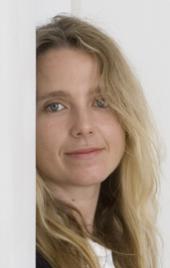 After studying Humanities at Yale, Daria was an artist-in-residence at the Cite Internationale des Arts in Paris, earned her MFA cum laude from UCLA, and was an artist-in-residence at the Defina Studios Trust in London. A filmmaker and an artist, over the past several years Daria has exhibited her work across Europe and has been featured or reviewed in numerous publications, including Art Review, Artforum, the Daily Telegraph, and the Guardian.
After studying Humanities at Yale, Daria was an artist-in-residence at the Cite Internationale des Arts in Paris, earned her MFA cum laude from UCLA, and was an artist-in-residence at the Defina Studios Trust in London. A filmmaker and an artist, over the past several years Daria has exhibited her work across Europe and has been featured or reviewed in numerous publications, including Art Review, Artforum, the Daily Telegraph, and the Guardian.
On her work and her experience as a Humanities major: Film is a medium that invites a world of conflicting emotions and ideas to resonate, to perform, to hesitate, merge, and part. Like pretend lovers on a stage, the elements that make up a film—actors, costumes, lighting, sets, sound, music, camerawork, editing—play out a scene of seduction and withdrawal, accord and tension. Film attracts and holds—then releases—whatever it is given. Its transformed beam of light is like a psychological projection, harboring as many possibilities as viewers in the room.
I came to film as a medium because of its open potential: the chance to travel through space and time within an imagined world. My films have allowed me to journey through assembled impulses, investigations, memories, reveries, scholarly research, and grabbed citations. This chosen medium offers the possibility of creating a fragmented totality.
As “total artworks,” my films require profoundly interdisciplinary research. I work with dancers, musicians, filmmakers, fashion designers, and pull from historical, art historical and literary research; all of these interests and skills were stimulated and strengthened by the Humanities major.
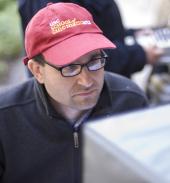 After the Humanities major (and before that, Directed Studies), Christopher moved to New York, where he was a consultant in new media. Deciding to pursue his passion to become a filmmaker, he received his MFA from the University of Southern California School of Cinema-Television and won a student Academy Award for his short film Mr. October. He has gone on to direct five feature films. This Is Not a Test, his first as both writer and director, was released on January 20, 2009, and is a satire about a man who becomes overly afraid that terrorists might attack Los Angeles. Christopher was also nominated for an Emmy for his work as the editor of James Cameron’s Expedition: Bismarck.
After the Humanities major (and before that, Directed Studies), Christopher moved to New York, where he was a consultant in new media. Deciding to pursue his passion to become a filmmaker, he received his MFA from the University of Southern California School of Cinema-Television and won a student Academy Award for his short film Mr. October. He has gone on to direct five feature films. This Is Not a Test, his first as both writer and director, was released on January 20, 2009, and is a satire about a man who becomes overly afraid that terrorists might attack Los Angeles. Christopher was also nominated for an Emmy for his work as the editor of James Cameron’s Expedition: Bismarck.
On the Humanities major: I could not imagine a better grounding for any filmmaker than the Humanities major. The interdisciplinary approach of the major allowed me to focus on narrative storytelling and the history of ideas, as well as on art history, and the history of aesthetics. As a writer, director, and editor of film, I still apply that interdisciplinary approach on a daily basis, approaching a project both from the point of view of a storyteller and as a visual artist. At Yale, as the Humanities major’s courses moved into the modernism period, I was able to make film and its relation to literature the focus of my studies. But the grounding in literature, philosophy, history, and art history from the entire course of study still serves as an inspiration and model for much of the work I seek to do today.
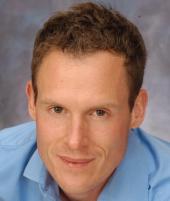 Upon graduating from Yale, Josh spent a few years acting in New York before deciding to go to medical school at Stanford. In addition to acting, before going to medical school he worked as a National Park ranger, as a research assistant in medical ethics, and in business development in the dotcom sector. He has published two medical thrillers, Isolation Ward and Flawless, both with Bantam/Dell.
Upon graduating from Yale, Josh spent a few years acting in New York before deciding to go to medical school at Stanford. In addition to acting, before going to medical school he worked as a National Park ranger, as a research assistant in medical ethics, and in business development in the dotcom sector. He has published two medical thrillers, Isolation Ward and Flawless, both with Bantam/Dell.
On the Humanities major: I enjoyed the balance between breadth and rigor in the major. Most importantly, I liked the focus on the interconnectedness of thought across disciplines. Many majors look at their disciplines as more self-contained, so they might not pay much attention to what impact philosophy has had on art, or to how art has effected history. Humanities provides what I feel is a more “real” or “organic” look at the past, by encouraging investigation into how these disparate elements of the past worked with and influenced one another.
The Humanities major was also crucial for my writing. The broad education it provided exposed me to ideas that help me structure thematic elements and enabled me to enrich my novels with apt references for those who know their philosophy, history, and arts. In my books, for example, I might reference Vesalius—perfect for a medical thriller—or Nietzsche, or Caravaggio. And my experience as a Humanities major will have even more bearing upon any historically based books I may write in the future.
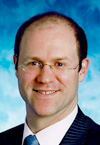 Following graduation, Sasha went to Italy on a Fulbright Fellowship to continue the studies on Dante he began as a Humanities major. He then turned to the financial world, working for Corporate Decisions, Inc., a strategy consulting firm, first in Boston and then in Paris. After attending the Wharton School at the University of Pennsylvania, he continued his work in the financial services industry at a number of companies: Boston Consulting Group; Frontline Capital Group, a publicly traded venture fund that invested in venture companies; Goldman Sachs’s private equity group; Citigroup’s strategic investment group; and TH Lee Putnam Ventures, a growth equity fund that focused on financial services and outsourced business services. In 2008 he founded Deucalion Advisors, an investment and advisory firm focused on financial and business services.
Following graduation, Sasha went to Italy on a Fulbright Fellowship to continue the studies on Dante he began as a Humanities major. He then turned to the financial world, working for Corporate Decisions, Inc., a strategy consulting firm, first in Boston and then in Paris. After attending the Wharton School at the University of Pennsylvania, he continued his work in the financial services industry at a number of companies: Boston Consulting Group; Frontline Capital Group, a publicly traded venture fund that invested in venture companies; Goldman Sachs’s private equity group; Citigroup’s strategic investment group; and TH Lee Putnam Ventures, a growth equity fund that focused on financial services and outsourced business services. In 2008 he founded Deucalion Advisors, an investment and advisory firm focused on financial and business services.
On the Humanities major: I selected the Humanities major because I was looking for a way of organizing my studies in an interdisciplinary manner. I found that studying questions of how literature, history, and history of art interact had a profound effect on me. I ended up focusing my studies on Dante, who appealed to me because he could serve as my “guide” to my studies. As a medieval man whose model was Virgil, he was rooted in the classical world. And as the first writer to write a “high” literature in the vernacular, he was a very modern individual.
Since my years at Yale, I have put my Dante studies on the back burner and spend most of my time as an investor and advisor to financial services companies. But the interdisciplinary approach that we used at Yale I still use today in how I evaluate companies and investments. I try to see business problems from multiple points of view, and I feel my studies at Yale helped me learn how to do this. And when I have a spare minute, I still like to read (and reread) the texts that would naturally fit into the Humanities program.